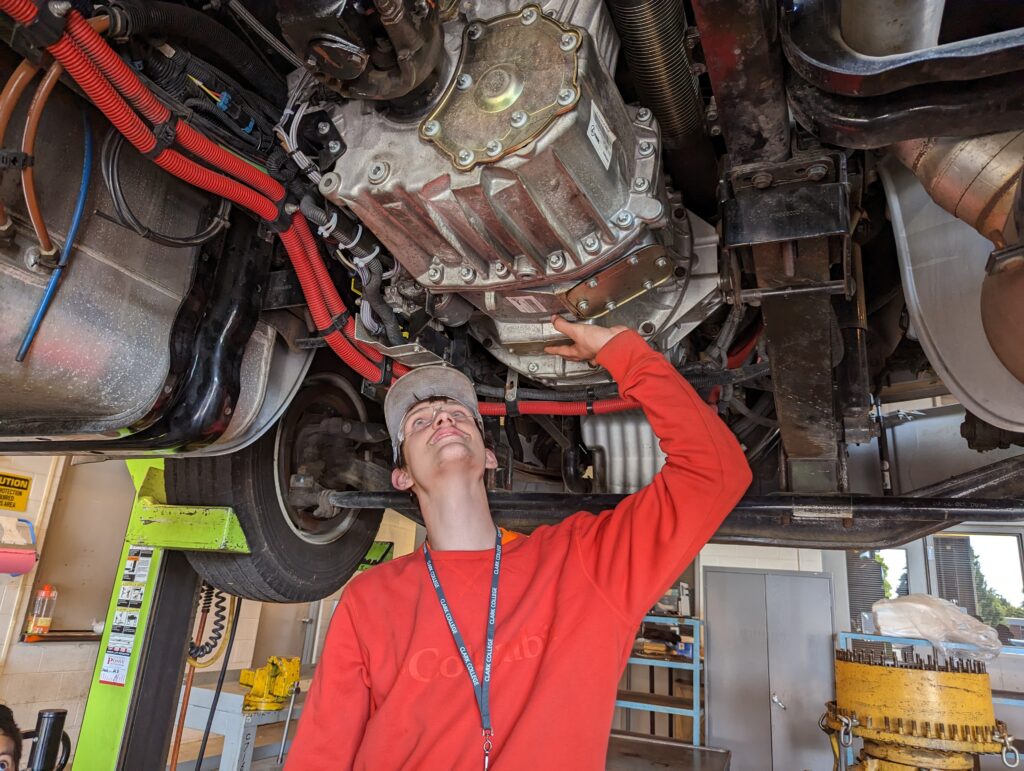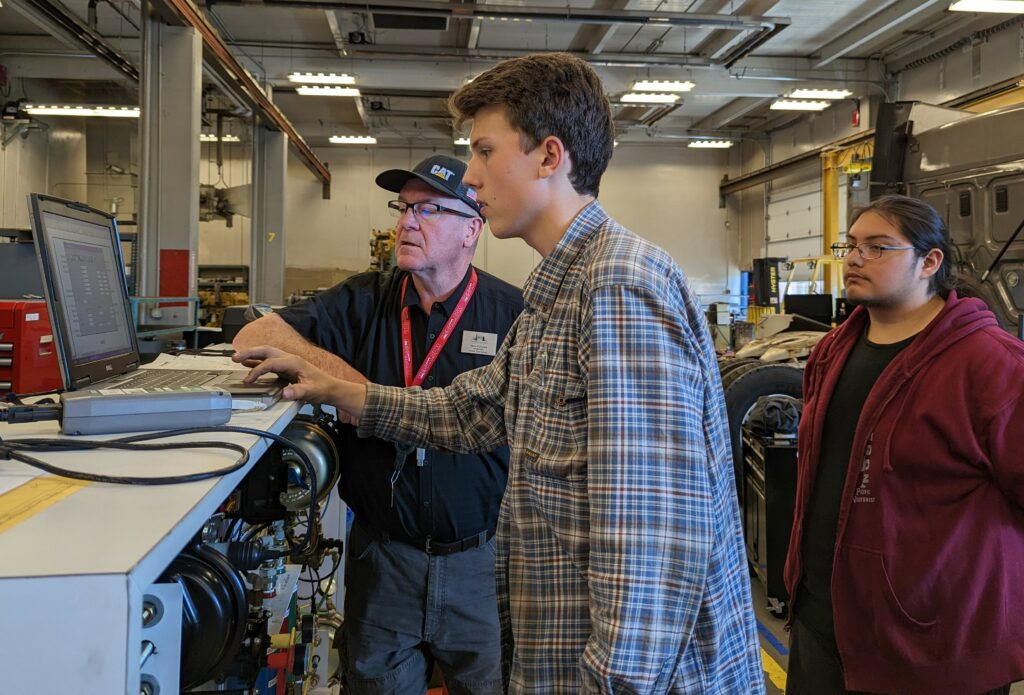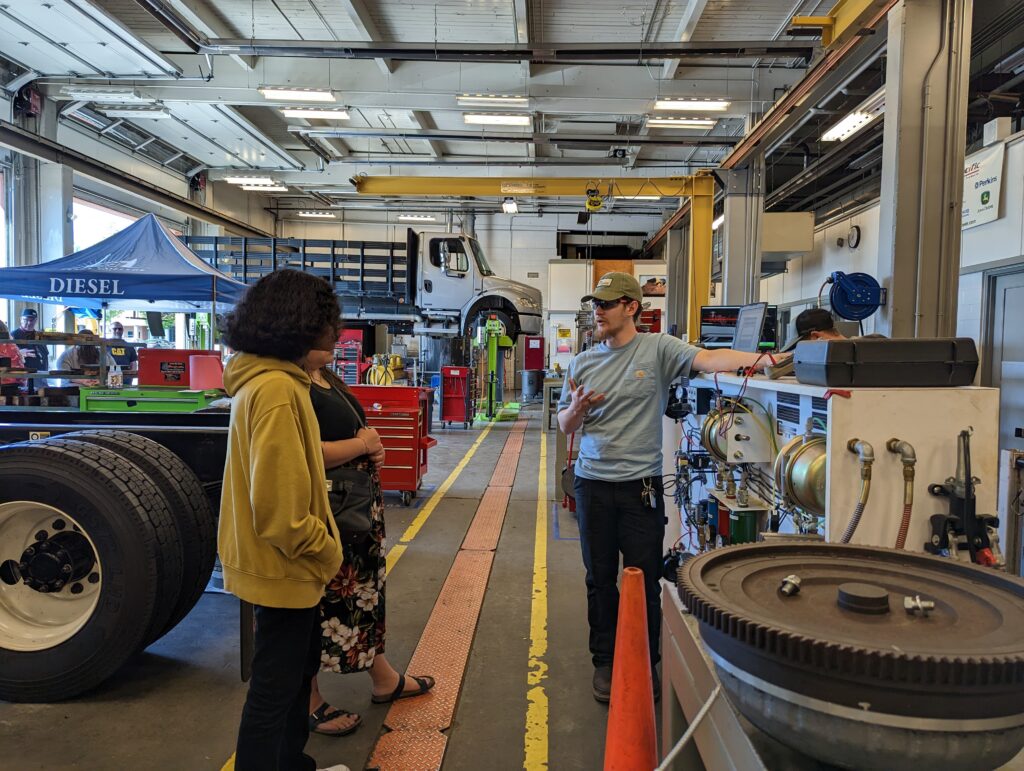
At Clark’s Diesel Technology open house on June 1, faculty and students demonstrated diagnostic tools and systems, and showcased diesel trucks and heavy equipment to visitors.
Potential diesel students had the opportunity to bring family members for a close-up look at Clark’s diesel program. Professor Don Gonser gave informal tours, and current diesel students answered questions and talked about their experiences in Clark’s program.
Some high school students who visited the open house currently are studying diesel technology at Cascadia Technical Academy, a high school that includes a diesel program which offers a seamless transition to Clark’s program.
“We articulate 20 credits from Cascadia Tech’s diesel program,” said Professor Don Gonser, explaining that it saves Clark students two lab classes and substantial tuition expenses.

Alex Baumgartner, 19, transferred 20 credits from Cascadia Tech. He is completing his first year in Clark’s program and already works as a diesel mechanic at Civil Works NW in Brush Prairie.
“It makes sense to choose something that’s going to pay you a livable wage,” Baumgartner said as he demonstrated the air brake diagnostic equipment to visitors.
Stephen Korn is finishing his first year in the diesel program. He has 10 years’ diesel experience in the field, including in the military. He is earning his degree so that he can advance in his career and move up to management.

Jayden Schauer, a second-year student who is preparing to graduate, said, “There’s so much opportunity in the diesel field. You can work in construction on heavy equipment, in trucking, on marine engines, in power generation used by big data centers, and more.”
The median hourly wage for a diesel engine specialist in Clark, Cowlitz, and Wahkiakum counties is $29.09 per hour and median annual wage is $60,517, according to Washington Department of Employment Security Data Department/Data Division.
Clark College’s diesel program offers a Diesel Technician Certificate of Proficiency and an Associate in Applied Science, a two-year degree.
Those interested in enrolling in Diesel Technology are encouraged to begin the program in summer term but can enter the program any term. Summer classes begin July 10.
To get started, contact the Welcome Center or contact Professor Don Gonser at dgonser@clark.edu.
Photos: Clark College/Susan Parrish












